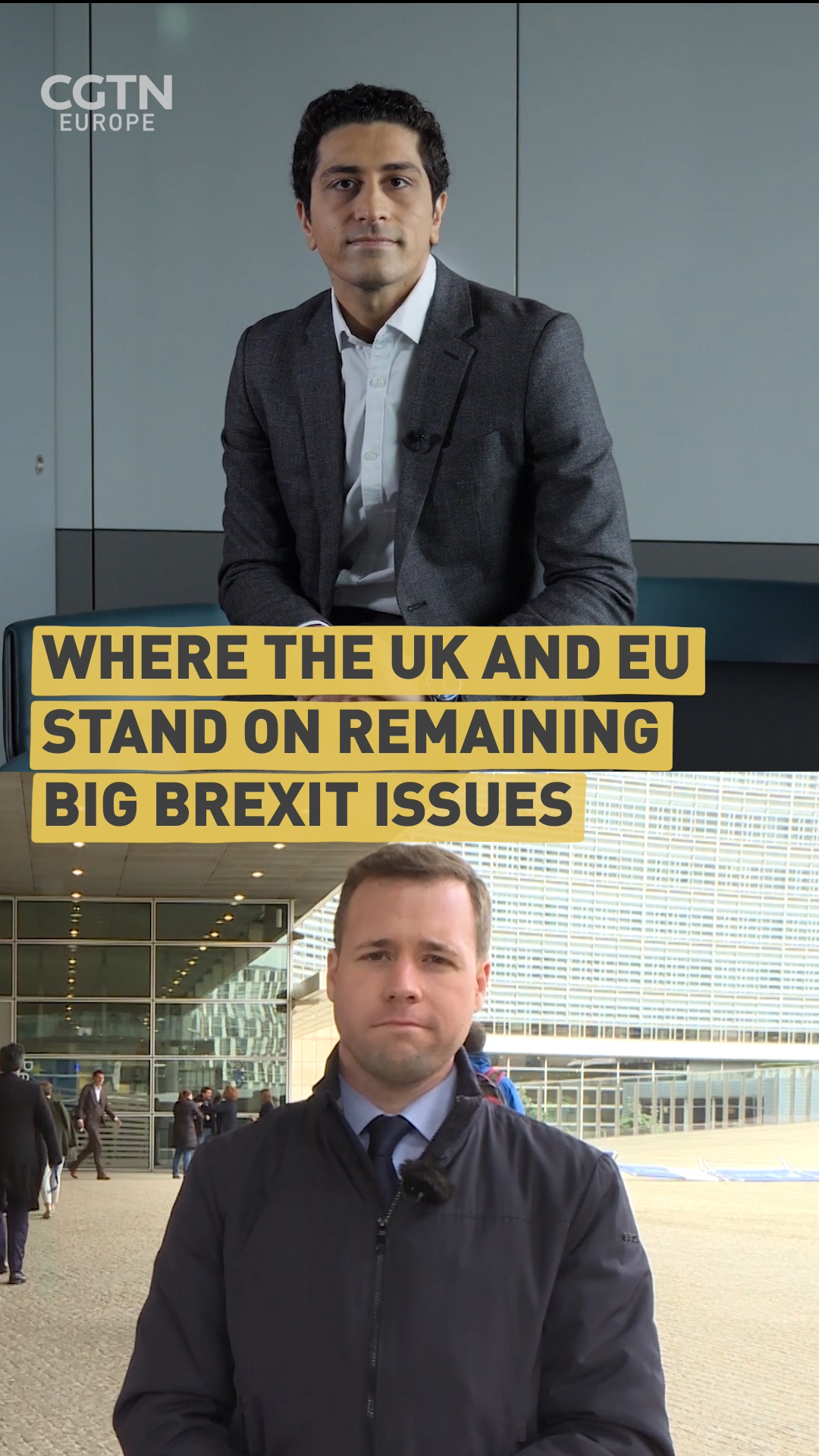The proposed date of the UK's departure from the European Union is 31 October. At the moment, the two sides have failed to agree on the terms of Brexit in three key areas. Here, CGTN's Nawied Jabarkhyl gives the view from London, while in Brussels, Bruce Harrison puts the EU's side.
03:21

Nawied Jabarkhyl on the view in London: The issue of Northern Ireland seems to be the key sticking point to the talks. UK Prime Minisiter Boris Johnson's latest proposals would see Northern Ireland leave the EU's customs union along with the rest of the UK in 2021, but it would remain part of its single market. That plan could go on indefinitely but, crucially, Johnson wants to give Northern Ireland politicians the chance to vote on the arrangement every four years, and for the smaller parties in the region's assembly that could unfairly empower the current largest party, the DUP. It is likely the UK will have to give some concessions on its current plans.
Bruce Harrison on the view in Brussels: EU negotiators have been unwilling to compromise on this issue when it comes to Johnson's latest proposals. They're simply not interested in any deal that would allow Northern Ireland to vote to opt out of the EU customs union. The EU team wants to maintain the so-called Irish backstop. The backstop would keep Northern Ireland in the customs union and ensure checks don't return to its border with Ireland. It is feared checks would compromise the Good Friday Agreement and possibly spark a return to violence between the countries.

UK Prime Minister Boris Johnson said in the event of a no-deal Brexit, the UK wouldn't 'legally owe' the EU $49bn in 'divorce' money (Credit: AP)
UK Prime Minister Boris Johnson said in the event of a no-deal Brexit, the UK wouldn't 'legally owe' the EU $49bn in 'divorce' money (Credit: AP)
Nawied Jabarkhyl on the view in London: The so-called divorce bill is the money the UK will have to pay the EU to meet all its existing commitments when it leaves the bloc. The previous UK government put the figure at almost $49 billion – the figure is not a precise one as it covers a long period of time, such as pension payments earned by staff during the UK's 45 years as an EU member. The UK says it will not make the exact figures public as it could jeopardize its negotiating position but, crucially, Johnson has said in the event of a no-deal Brexit, it wouldn't "legally owe" the EU the money, and it could end up paying far less than the almost $50 billion agreed by his predecessor Theresa May.
Bruce Harrison on the view in Brussels: The EU says the UK has to pay up whether or not there's a deal. Brussels says that under commitments the UK made during its EU membership it has no choice. And if not, it could jeopardize any future trade deal between Britain and the remaining EU member states. But Johnson has threatened to pay far less than the figure proposed by May. The bill would cover the UK's outstanding budget contributions and payments to EU institutions during a transition period following Brexit.

Britain is split on the issue of Brexit and protesters have been campaigning to remain in the bloc. (Credit: AP)
Britain is split on the issue of Brexit and protesters have been campaigning to remain in the bloc. (Credit: AP)
Nawied Jabarkhyl on the view in London: Boris Johnson has said he'd rather be "dead in a ditch" than ask the EU for another delay. A recent law passed in the UK means he will have to request an extension if there is no deal approved by parliament by 19 October. The prime minister says he will abide by that law, but that Britain will also definitely be leaving at the end of the month. It is not clear how he will reconcile the two, but the easiest way out of making that choice would be to strike a deal with the EU that satisfies lawmakers at home.
Bruce Harrison on the view in Brussels: The talks have dragged on for years and there is no doubt many in Brussels have grown weary of the process. But EU leaders would much prefer an extension than Britain crashing out and the messy aftermath. EU Parliament president David Sassoli recently said the EU will only agree to an extension if the UK agrees to hold a general election or a second referendum.